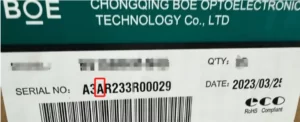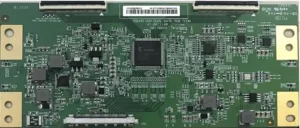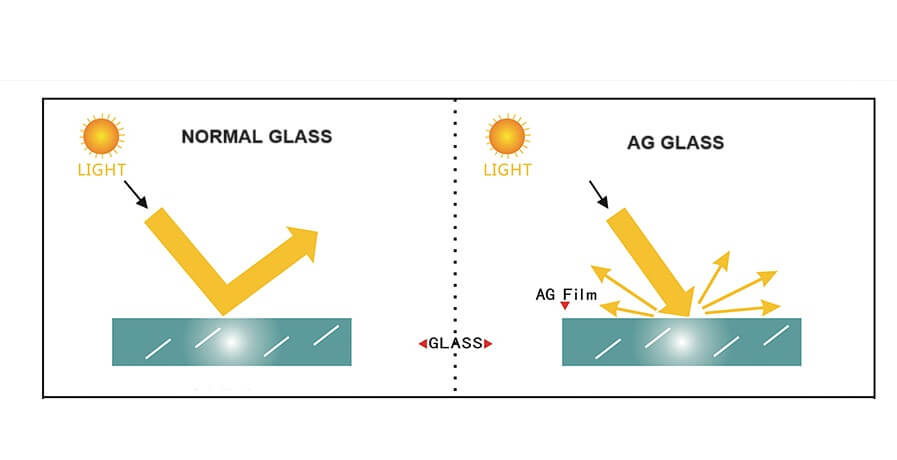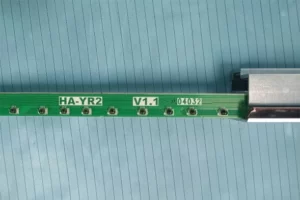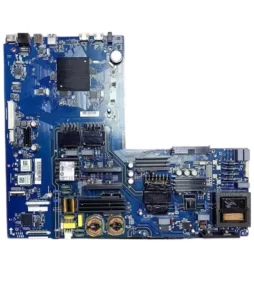
Interactive Flat Panel Display
Manufactured by Yatal Tech
Existing & Custom Designs Available
All of our Interactive Flat Panel are designed, manufactured and sold factory-direct from our DongGuan headquarters
Jump To:
.
Yatal Tech Interactive Flat Panel Gallery
Economy Series (E)
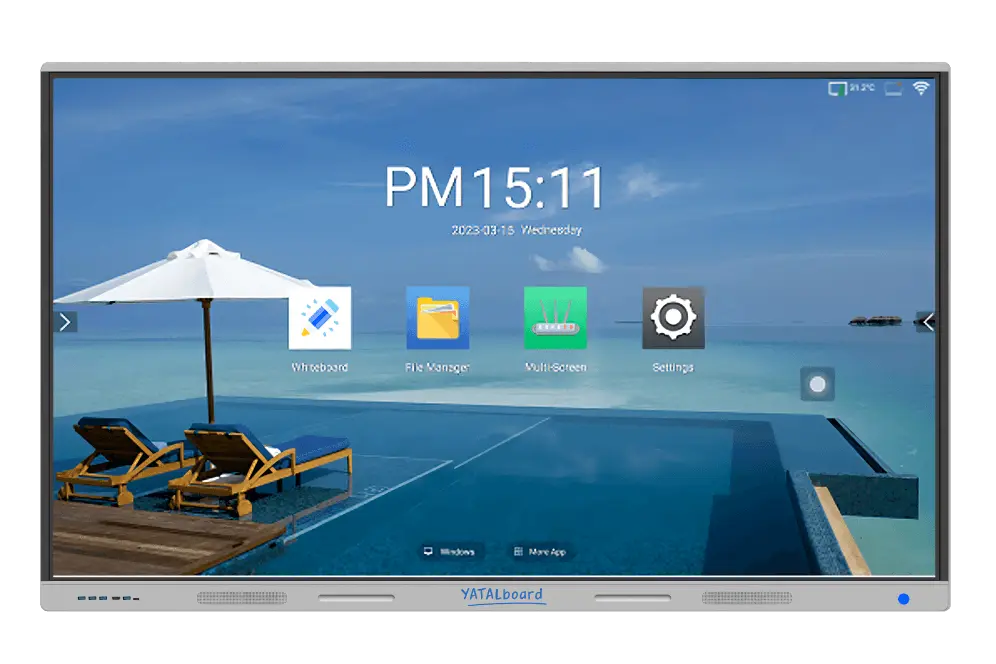
Model EX
A grade Panel/Zero bonding/20 Touch/Andriod 13/Budget Friendly
Standard Series(S)

SX
A grade Panel/Zero Bonding/Android 13/Rich Interface&Spec for Choice/two appearances for Optional

SY
A grade Panel/Zero Bonding/8 core CPU/Android 11/Support Multi-task
Premium Series(P)

Model PX
A grade Panel/Zero bonding/20 Touch/Rich Interface with HDMI OUT
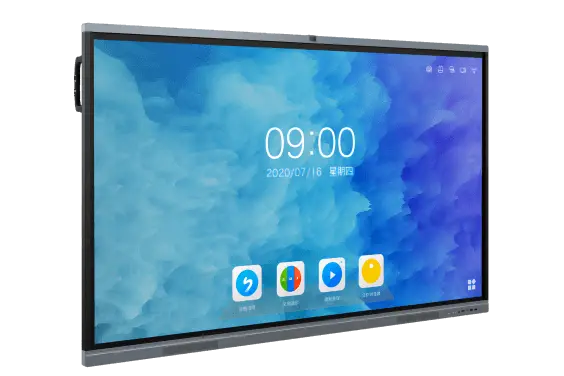
Model PY
A grade Panel/Zero Bonding/8 core CPU/Android 11/Support Multi-task/65W Full-fuctioned Type-C/ HDMI OUT

Model PZ
A grade Panel/Zero bonding/40 Touch/48MP Camera+8 Array Mic /Competitive with Maxhub V6 Classic
The Lowest-Cost Strategy Is To Choose a Reliable IFPD Manufacturer like Yatal Tech.
Yatal Tech, with its experienced specialists, specializes in manufacturing IFPD and provides technical support and one-stop solutions for the global market.
What is Interactive Flat Panel ?
An Interactive Flat Panel Display (IFPD) is a cutting-edge display technology that transforms traditional classrooms and collaborative workspaces. This advanced touch-sensitive screen serves as an interactive hub, combining the functions of a traditional whiteboard, projector, and computer into a seamless and dynamic educational or business tool.
Interactive Flat Panel Applications
The Interactive Flat Panel Display (IFPD) is now widely used in various scenarios such as education, business collaboration, training, healthcare, shopping malls, entertainment, and more.
Education-Learning Made Fun:
- IFPDs have transformed traditional classrooms into interactive learning hubs.
- Teachers use them to create dynamic lessons, annotate content, and engage students in immersive learning experiences.
- Collaboration is enhanced as students can interact directly with the digital content.

Collaboration-Working Together Better:
- In boardrooms and meeting spaces, IFPs serve as collaborative tools for presentations and discussions
- Colleuages can annotate, share, and interact with content in real-time, fostering better communication and decision-making.

Training Programs-More Smart :
- Interactive Flat Panels allowing trainers to create interactive content and simulations.
- Participants can actively engage with training material, enhancing comprehension and retention.

Healthcare :
- IFPs help explain things to patients
- Doctors use them for training and discussing cases, making healthcare smarter and dynamic presentations.
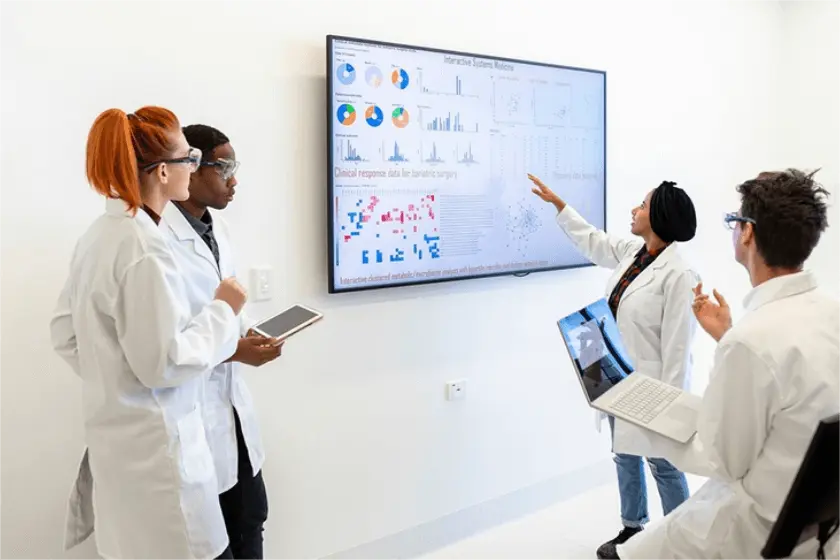
Interactive Flat Panels have many other uses. For example, In museums, you can touch and explore. In stores, they show products in a cool way. In big places, they guide you with maps. In fun places, they make experiences that grab your attention. As technology grows, these displays will do even more cool things in different areas, making life better for everyone.
Different Types and How To Choice the Correct IFPD?
Various touch technologies have emerged for large-size touch screens, among which infrared (IR) touch, capacitive touch, electromagnetic resonance (EMR) touch and projected capacitive touch (PCT) are the most popular.
In education and office applications, infrared (IR) touch and capacitive touch take the lead, and notably, infrared (IR) touch takes the lead with a whopping 80% market share, primarily due to its cost-effectiveness. Let’s take a brief look at the pros and cons of these two touch technologies.


Infrared (IR) Touch:
- Cost-effective: a 65-inch infrared frame costs between $25 and $30.
- Simple maintenance: simple maintenance and low cost. Most infrared frames are designed to be externally disassembled, allowing maintenance to be performed without disassembling the entire machine.
Capacitive Touch:
- Good Looking: Image your iPad with a frame! The absence of an infrared frame contributes to a sleek, beautiful, and slim design, providing a flat and seamless surface.
- Light transmittance: Because of the use of optical bonding technology, the capacitive touch screen has higher light transmittance, making the display brighter and clearer. This is important to maintain the visibility and image quality.
- Meet special applications: Sometimes you want the touch screen to be in a horizontal position, like in a museum or a kindergarten. Due to the technical principle of capacitance, objects placed on the touch screen will not interfere with the touch screen. Our Nano Smart Blackboard also uses capacitive touch technology. a. It allows us to seamlessly splice the touchscreen and blackboard. b. Easy to Clean. c.Will not be affected by chalk dust
The choice between capacitive and IR touch depends on specific use cases, budget considerations, and environmental factors.
Choosing the Right Size:
Correct size is another important factor that should be considered when purchasing IFP.
In classrooms, the ideal size for interactive displays depends on various factors such as the number of students, the size of the room, and the viewing distance. In China, the Ministry of Education has set standards for interactive electronic whiteboards, including the minimum size for products like electronic whiteboards, interactive flat panels and Nano Smart Blackboards.
| Classroom area | Number of students | Display area |
| <50㎡ (<538 sq ft) | <30 | ≥177.8cm( 70″) |
| 50-70㎡ (538-753 sq ft) | 30—50 | ≥215.9cm( 85″) |
| >70㎡ (>753 sq ft) | ≥50 | ≥254.0cm( 100″) |
According to the standards released on August 24, 2017, by the Chinese Ministry of Education, the minimum size specified for interactive displays is 70 inches.
This is based on the consideration that classrooms in China can have 40-50 students, and students in the last row may need to view the screen from a distance of 8 meters or even farther. Therefore, most schools tend to purchase displays of 75 inches or larger sizes.
In contrast, in some countries like the United States, where classrooms may have fewer students (around 20-25), smaller screen sizes, such as 65 inches, might be suitable. However, if the budget allows, schools may opt for larger sizes like 75″ Interactive Flat Panel.
For office use :
55″ Interactive Flat Panel: 1-6 people (≈10 ㎡)
65″ Interactive Flat Panel: 5-10 people( 10-15 ㎡)
75″ Interactive Flat Panel: 10-15 people(15-25 ㎡)
86″ Interactive Flat Panel: 15-25 people(25-50 ㎡)
The choice of screen size depends on the specific requirements and budget considerations.
How Much Does an Interactive Flat Panel Cost?
This is perhaps the most crucial question for both consumers and professional buyers. The 65-inch size represents the largest shipment volume among all regular sizes. Therefore, we use the 65″ Interactive Flat Panel as an example.
The prices of interactive flat panels have changed a lot in last ten years. Interactive flat panels are quite similar to smart TVs. If you’re not familiar with Interactive Flat Panel , think about the price difference between a 65-inch TV ten years ago and its current price!
In 2012, the retail prices for a 65-inch interactive flat panel ranged from $5000 to $8000 (factory OEM/ODM prices around EXW$ 1200-1500). However, as the costs of LED Panels decreased, the demand for large screens in the education sector increased, and more brands entered (like ViewSonic, Optoma, and BenQ), the prices began to decline year by year.
In 2023, there’s still a big difference in prices at retail due to brands’ price strategies and the variety of models. In the education sector, a well-known company is SMART Technologies, which went public in the United States in 2010 (acquired by Foxconn for $200 million in 2016). In their public pricelist of August 2022, their MSRP price of 65-inch models is between $4999(6265S-V3) and $2999(GX165), depending on the specific model.
Other major brands like Clevertouch, Maxhub, Promethean, and Newline also have prices ranging from $5000 to $1500.
Most of their Interactive Flat Panels are manufactured in China, primarily undertaken by major factories such as CVTE, HITEVISON, and KTC.
Yatal Technology Co., Ltd is one of the OEM manufacturers for these prominent Chinese factories. Learn more about us and take a factory tour online.
As a purchaser, you may receive quotes from various factories and trading companies. Taking the example of a 65-inch Interactive Flat Panel, you might get quotes as low as EXW$500 from some small companies and around EXW$800 from larger ones like CVTE, HITEVISON, and KTC.
Then you will be confused. Why is the price so different, even though they are all 4K 65″ Interactive Flat Panel with Android 11 System 4+32? Are the $500 products of good quality? Is the $800 price tag too high? What is a reasonable price? Perhaps, you can benefit from listening to our experts who provide insights from the factory’s professional perspective.
Interactive Flat Panel Components
Take the 65″ Interactive Flat Panel with IR touch technology as an example.
The main components of an Interactive Flat Panel are composed of the Shell (front frame, back cover), Backlight Unit, LCD Panel, TCON, Tempered Glass, Infrared Frame, Android Motherboard, and Power Board.
1. Shell: No need for much description, each brand/manufacturer will have its distinctive design.
2. Backlight Unit: The quality of the backlight unit determines crucial parameters such as brightness, uniformity of illumination, and color gradation for the LCD screen. It typically consists of a backlight source and multiple layers of optical sheets.
a. Backlight Source: The light source is a key component and can be provided through different technologies such as LED (Light Emitting Diode) or CCFL (Cold Cathode Fluorescent Lamp). Modern LCDs almost all use LED backlight modules because they are more energy-efficient and have a longer life service.
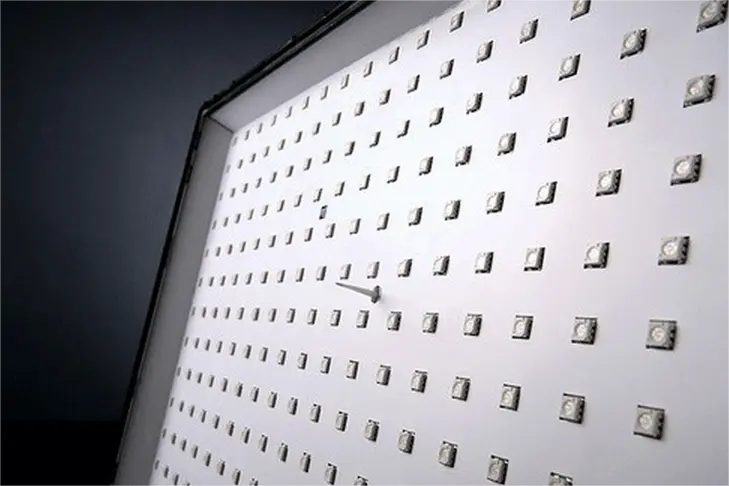
LED Backlight
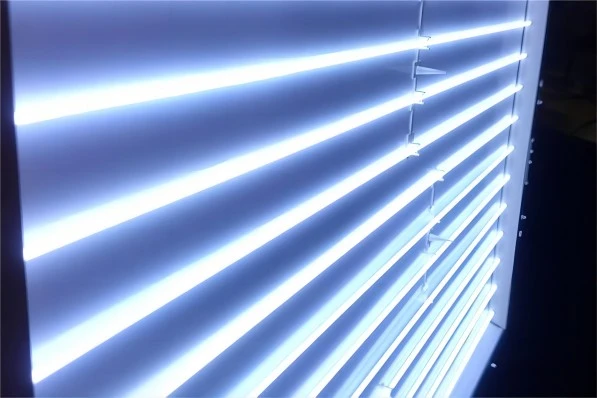
CCFL Backlight
According to the different positions of the light sources, they are divided into Edge-lit(E-LED) and direct-lit (D-LED) . D-LED can make the brightness of the picture more uniform and have higher brightness. Therefore, most Interactive Flat Panels used D-LED technology.
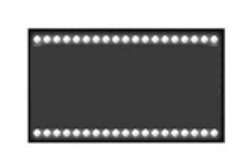
E-LED

D-LED
b.Layers: From bottom to top : 1 x Reflector Sheet,1 x Bottom Diffuser Sheet, 2 x Brightness Enhancement Film(BEF),1 x Top Diffuser Sheet

Backlight Layers

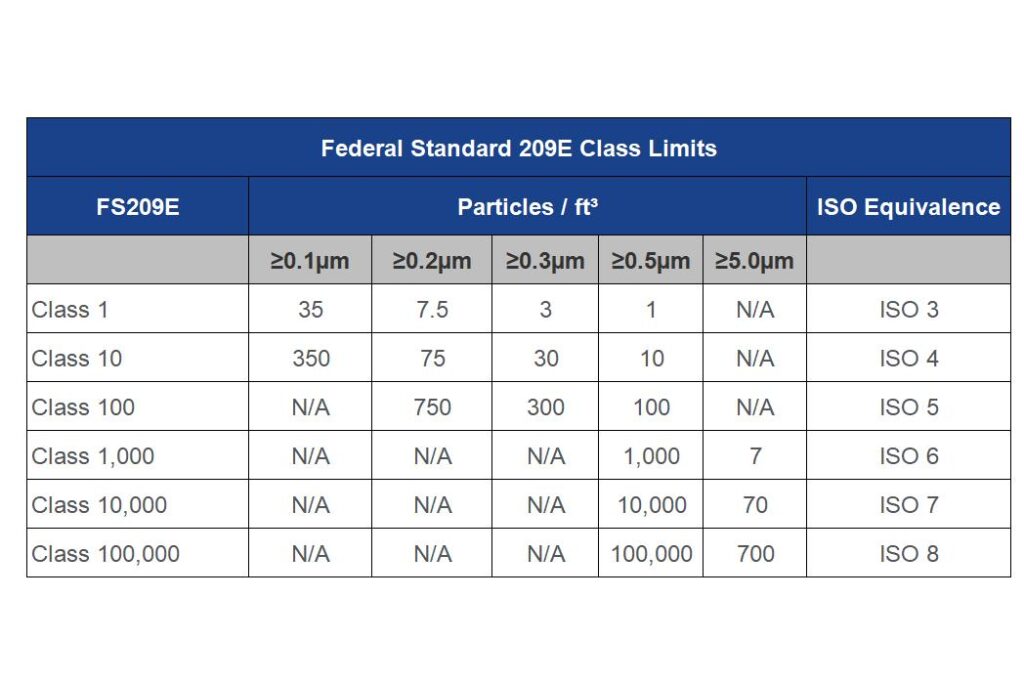
3. LCD Panel :Currently, there are only eight LCD panel manufacturers globally: BOE, CSOT, HKC, Innolux, CHOT, AUO, Sharp, and LGD. Our chosen suppliers are BOE and CSOT.
The cost of the LCD Panel makes up around 30-40% of the total price of the Interactive Flat Panel. To cut costs or meet the very low purchasing budgets of certain customers, some manufacturers might choose cheaper, lower-quality LCD Panels or even use second-hand or repaired ones.
Yatal Tech promises to only uses Original grade-A Panels from BOE and CSOT.
4. TCON: The TCON (Timing Controller) is a crucial component responsible for controlling the timing of signals sent to individual pixels on the screen. It functions like a translator, processing LVDS signals from the Android motherboard and converting them into RSDS signals that the LCD screen can recognize. The other key functions are Pixel Activation Timing, Refresh Rate Control, Color Signal Processing, Resolution Support, and Reducing Motion Blur. So you can see a quality TCON is very important.
Yatal Tech uses Original TCON from BOE and CSOT. Even though using third-party TCON could reduce our costs by $6-8.
5. Tempered Glass: Unlike regular TVs, the usage environment for interactive flat panels is more complex, especially in classrooms where students may accidentally hit the screen. Risk of broken glass posing a potential threat to students. To solve this problem, we use 7H hardness tempered glass, providing both student safety and ensuring the normal operation of the device.
As classrooms and offices are generally well-lit environments, the glass requires anti-glare treatment to reduce the impact of sunlight and artificial lighting. AG glass can make the reflection of light go from 8% down to below 2%. There are typically two processing methods for anti-glare glass: coating and etching. We opt for the etching process, which, compared to coated glass, eliminates the risk of coating peeling and does not contain volatile substances. Moreover, it ensures a uniformly rough surface on the glass, enhancing the writing experience.
Additionally, we offer customization options for clients, such as additional coatings like anti-fingerprint (AF) and antibacterial coatings, to diverse customer needs.
When it comes to glass, I have to mention our bonding technology. Our manufacturing process ensures that the distance between the glass and the LCD panel is ≤1mm, which is the “Zero Bonding” technology mentioned by various brands. Some manufacturers can only achieve 1.5mm-2mm, but we come much closer to “Zero”. This precise bonding process sets high environmental standards,our factory has a class 1,000 clean room(ISO6) l and a class 10,000 clean room(ISO7).
6. Infrared Frame: is a device that utilizes infrared light to create an interactive touch-sensitive area on a display. It typically consists of an array of infrared LEDs and photodetectors that form an invisible grid across the screen. When an object, such as a finger or stylus, interrupts the infrared light beams, the position of the touch can be detected, enabling user interaction with the associated display.
Since the appearance of the first electronic whiteboard in the 1990s, infrared technology has firmly dominated the interactive touch technology market due to its affordable price and reliable touch experience. According to DISCIEN data, in 2020, infrared touch technology accounted for 89% of the global Interactive Flat Panel Display (IFPD) touch technologies. Currently, this technology has become highly mature, and here are some key data points:
- Accuracy reaching 1-2mm
- Response time less than 5ms
- Writing height below 3 mm
- Supports up to 40 touch points (although such scenarios are rare in practical use)
- The infrared frame features a front-detachable design, allowing the damaged infrared frame to be removed without opening the back cover.
Perhaps with future technological advancements, infrared touch frames can achieve even smaller precision and support more touch points. However, the impact on the actual user experience has become minimal. It’s similar to the current situation with smartphones – although new technologies are introduced every year, it’s challenging to provide a surprising feeling to users
7. Android Motherboard: The Android motherboard essentially serves as the brain of the Interactive Flat Panel. It manages the device’s functionalities, including processing user inputs and running applications. Additionally, the motherboard features various interfaces such as HDMI, USB, LAN, VGA, MIC, TYPE-C, WiFi, and Bluetooth modules, significantly enhancing the expandability of the Interactive Flat Panel.
In the education and large-screen office sector, The main motherboard brands that Chinese manufacturers export and commonly used are CVTE, LANGO, and DAZZELVIEW In the international market, many brands collaborate with CVTE and LANGO to develop motherboards and user interfaces (UI).
CVTE, established in 2003, initially focused on developing motherboards and power solutions for TVs. Over time, they identified the growing demand for large-sized Interactive Flat Panels in education and offices. They acquired some factories, allowing them to gain complete machine production capabilities. However, their primary focus remains on research and development. They utilize verified third-party factories to fulfill many orders, and we are one of them. They use their self-developed motherboards and UI in China, under the brand SEEWO, and international brand MAXHUB. Their BYTELLO system is widely adopted by international brands such as TRIUMPH and Specktron. If you are interested in this system, please feel free to contact us.
LANGO is also a company with strong R&D capabilities, they have developed motherboards and UI for brands like BENQ, SMART, SHARP, and HITEVISON.
Yatal has engaged in deep collaboration with CVT and LANGO.
Our product line is categorized based on the performance and expandability of the motherboards. Take our product series in collaboration with CVT as an example:
Standard Series: CVT C.T.982.81 motherboard
Economy Series: CVT C.T.982.61 motherboard
| Motherboard Modle: | C.T.982.81 | C.T.982.61 | |
| Performance | CPU Frequency | 2.0Ghz | 1.8Ghz |
| Standard RAM+ROM | 4+32 | 3+32 | |
| Network Port | 10/100/1000M | 10/100M | |
| Expandability | HDMI OUT | YES(Optional) | NO |
| Full fuction Type- C | YES(Optional) | NO | |
| DP | YES(Optional) | NO | |
| SD Card Slot | YES (Optional) | NO | |
Compare the performance :
C.T.982.61 vs C.T.982.81: CPU frequency 1.8Ghz vs 2.0Ghz , Standard RAM+ROM 3+32GB vs 4+32GB , Network Port 10/100M vs 10/100/1000M
Compare the Expandability :
C.T.982.61 has no HDMI OUT, Full function Type-C, DP, SD Card Slot
If you are interested in more mainboard specifications, please contact us, and we will be happy to share more details with you.
Why Choose Yatal Tech
Innovation
We launch new products every year, ensuring you always find something fresh and innovative in our offerings
Quality Control
Our factory is ISO 9001 certified, ensuring the highest quality standards for our products
Flexible Qtys
Start from 1 piece. You can benefit from low minimum order quantities and exclusive discounts for your big projects
Customization
OEM&ODM&SKD solutions for your choice. You can achieve your desired solutions through our R&D team
Cost-Effective
As a factory, we offer the best prices and a one-stop solution through our strong supply chain
360°After-Sales
We provide 2-year warranty for Interactive Flat Panel. Provide replacement parts within 5 years


